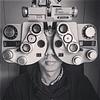Take a photo of a barcode or cover

thisotherbookaccount 's review for:
The Three Musketeers
by Alexandre Dumas
I want to begin this review by saying that the translator of this particular edition has done a tremendous job at retaining the tone of the writing, and yet making it accessible to modern readers (like myself). Not very many translators can resist the temptation of using convoluted language just because a book was written more than a century ago. I also want to acknowledge that, for a book of its time, The Three Musketeer is surprisingly fast paced, moving from one scene to the next at breakneck speed, subverting the expectation that classics are often slow and meandering.
But that is about as much positives I can say about this so-called classic literature.
Maybe it is naïveté on my part, but I never knew that the three musketeers were, in fact, assholes. Instead of the heroic, valiant versions of them we have seen in other media, the real musketeers here are cheaters, freeloaders and outright scoundrels. When they are not cheating challenging random strangers to duels, they are cheating their mistresses (often married) of money, gambling their money away at faraway inns and threatening innkeepers so that they can eat and drink and sleep for free at their inns. “Lovable Scoundrels” they are not. Just scoundrels.
While we are at it, why is this book called The Three Musketeers? There are four musketeers. In fact, the book is largely from the perspective of the fourth musketeer. Was Dumas high? Could he not count?
So if our protagonists are 17th century assholes, maybe we can find characters elsewhere to root for? No, because the other characters are peripheral at best, or are women with stereotypical fainting spells and victims to romantic notions. Like, they cannot exist without the love of our protagonists, so they throw fits.
I cannot stand to finish this book. I also cannot fathom why it has developed such legs over the century. It is a door stopper of a book that is largely about nothing at all. It is a shallow piece of work that has somehow remained on bookshelves around the world for undeserved reasons. For the life of me, I do not understand its popularity.
But that is about as much positives I can say about this so-called classic literature.
Maybe it is naïveté on my part, but I never knew that the three musketeers were, in fact, assholes. Instead of the heroic, valiant versions of them we have seen in other media, the real musketeers here are cheaters, freeloaders and outright scoundrels. When they are not cheating challenging random strangers to duels, they are cheating their mistresses (often married) of money, gambling their money away at faraway inns and threatening innkeepers so that they can eat and drink and sleep for free at their inns. “Lovable Scoundrels” they are not. Just scoundrels.
While we are at it, why is this book called The Three Musketeers? There are four musketeers. In fact, the book is largely from the perspective of the fourth musketeer. Was Dumas high? Could he not count?
So if our protagonists are 17th century assholes, maybe we can find characters elsewhere to root for? No, because the other characters are peripheral at best, or are women with stereotypical fainting spells and victims to romantic notions. Like, they cannot exist without the love of our protagonists, so they throw fits.
I cannot stand to finish this book. I also cannot fathom why it has developed such legs over the century. It is a door stopper of a book that is largely about nothing at all. It is a shallow piece of work that has somehow remained on bookshelves around the world for undeserved reasons. For the life of me, I do not understand its popularity.